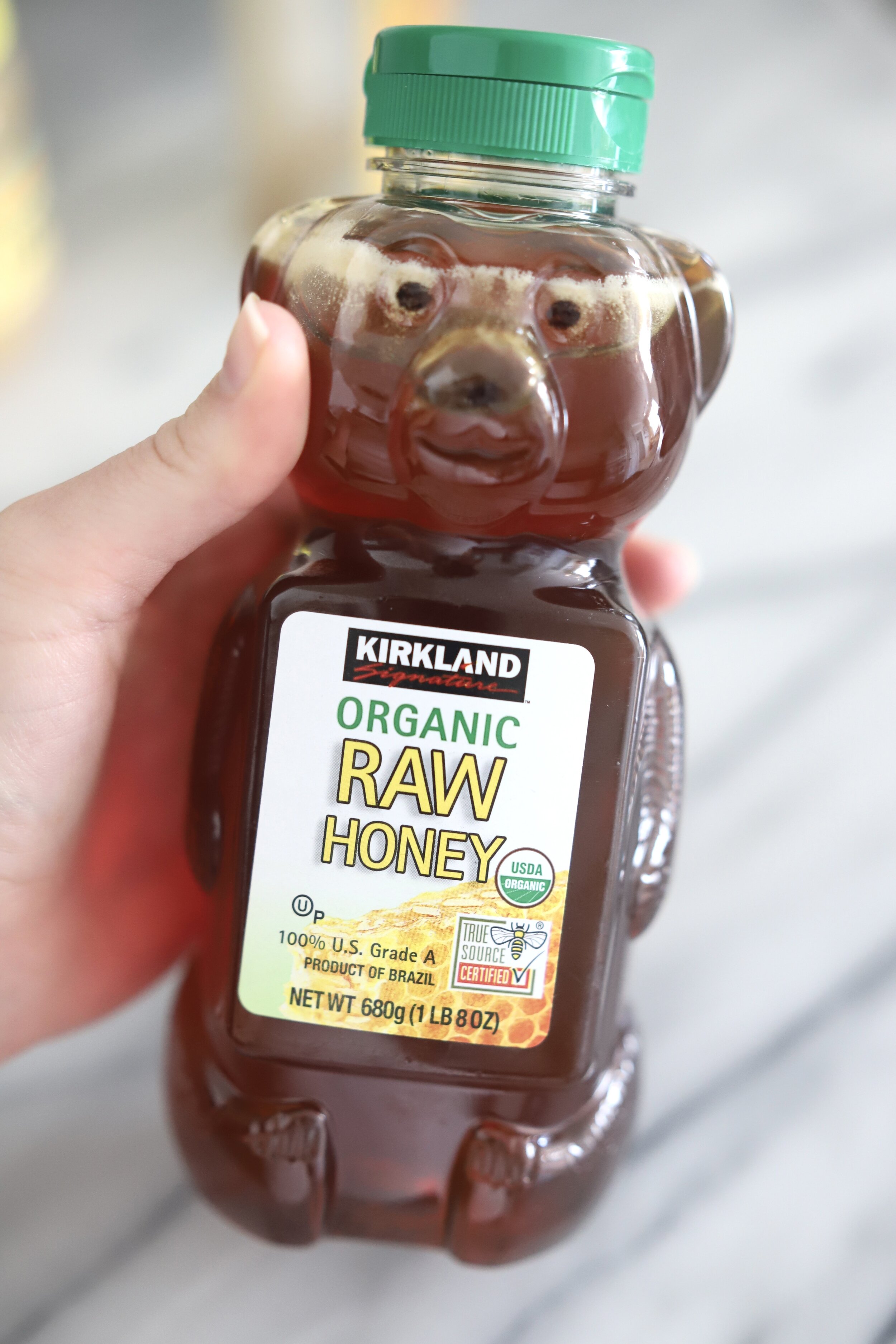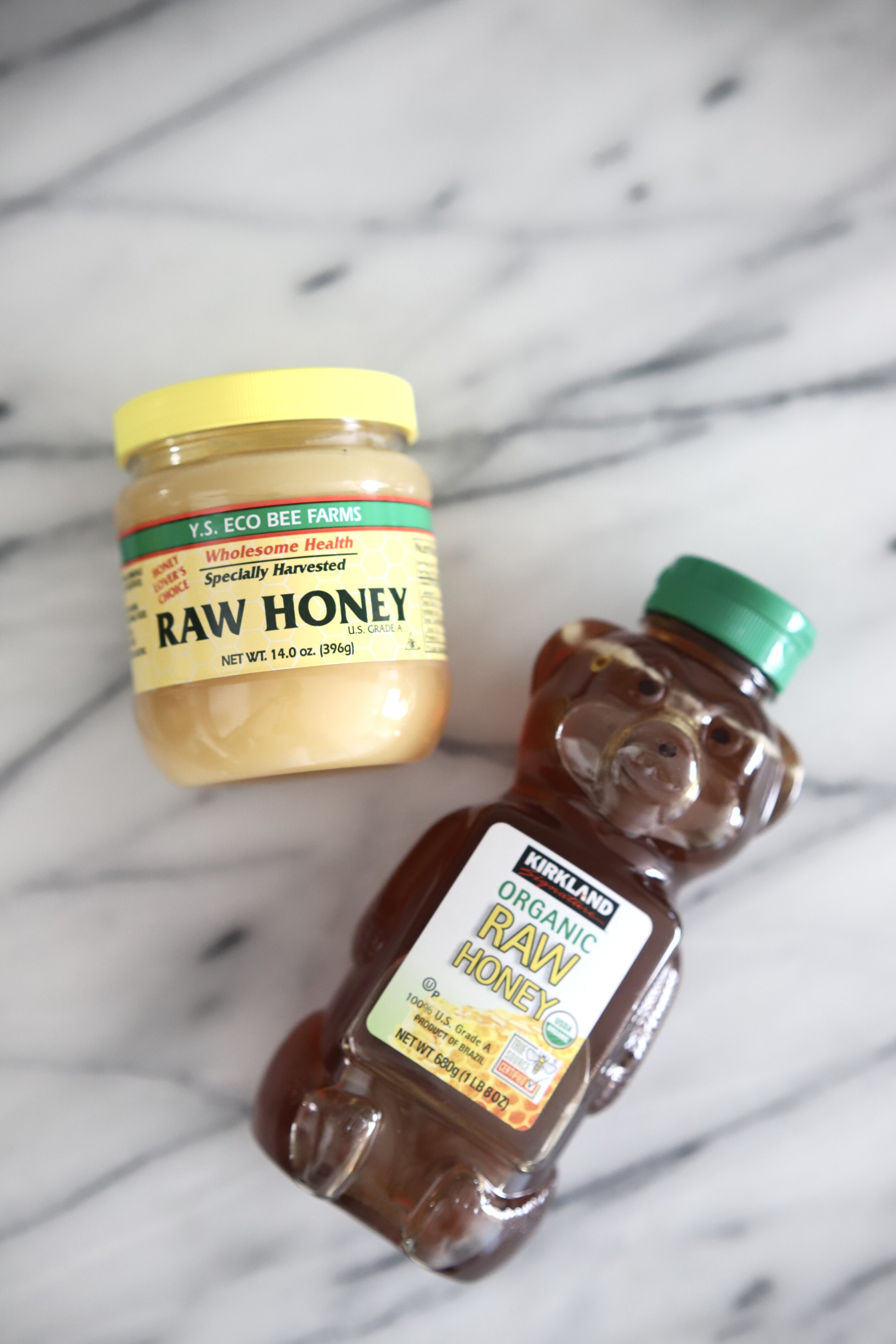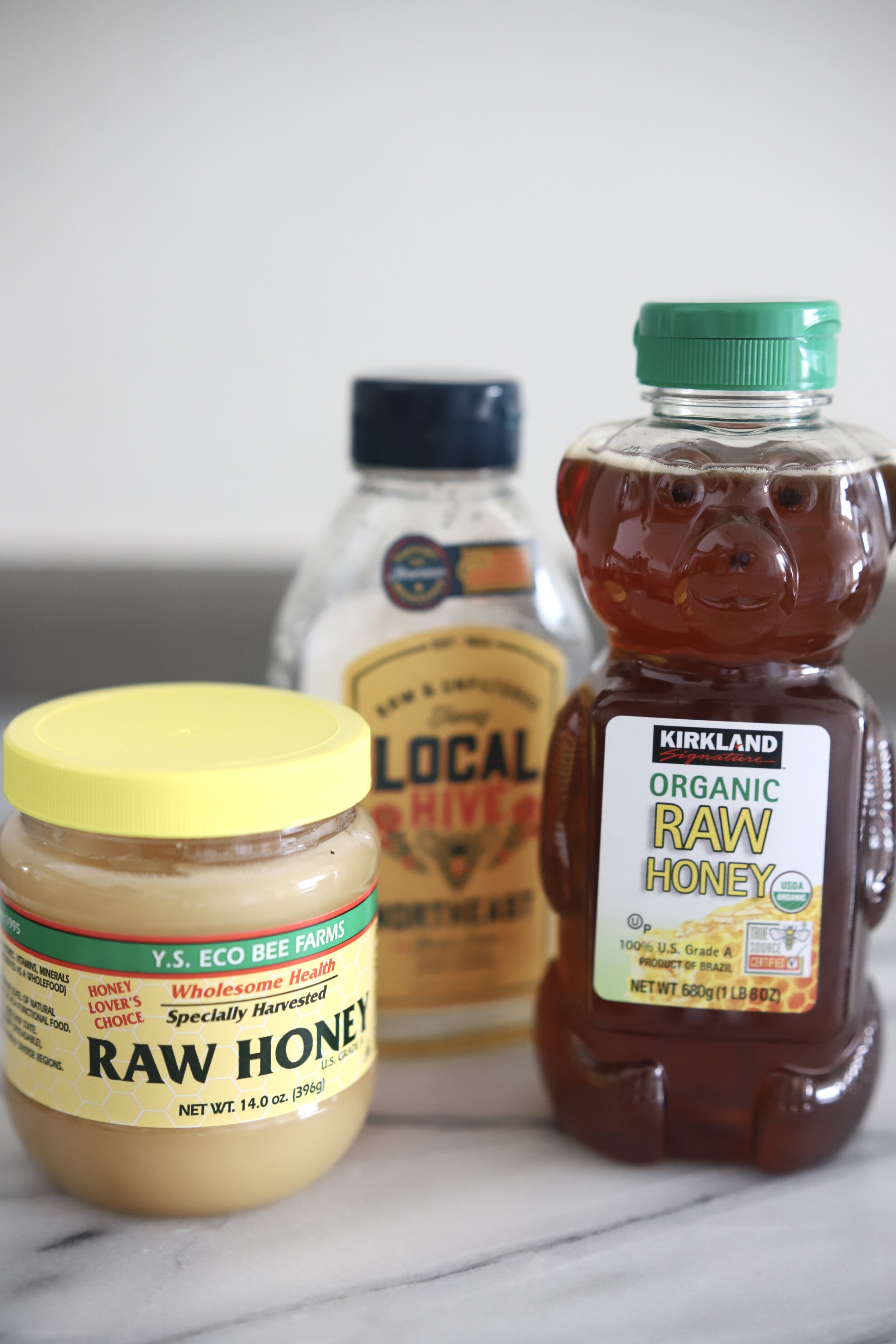The Health Benefits of Raw Honey
Did you know that not all honey is created equal? In fact, many honey bears are actually useless.
Back in ancient times, raw, unfiltered honey was used for a variety of health benefits including healing wounds, providing immune support, eliminating disease, and even helping to get rid of hiccups. Throughout time, honey has been one of the most valued natural products of all time.
Somehow, though, honey has become an avenue for processing, greed, and more money. Instead of making RAW and UNFILTERED honey straight from the hive, big companies now create a “honey” that is only full of sugar and additives rather than the true product. I’m here to help you know what honey can do for your body and which types of honey to purchase from your grocery store!
Health Benefits
First, honey has been known to help your body in a variety of ways. Traditionally, honey is used in the treatment of “eye diseases, bronchial asthma, throat infections, tuberculosis, thirst, hiccups, fatigue, dizziness, hepatitis, constipation, worm infestation, piles, eczema, healing of ulcers, and wounds and used as a nutritious supplement.” (NCBI) Honey contains ingredients that have antioxidant, antimicrobial, anti-inflammatory, antiproliferative, anticancer, and antimetastatic properties. Many studies throughout the decades have found honey to help in the treatment of wounds, diabetes, cancer, asthma, and also cardiovascular, neurological, and gastrointestinal diseases. You may be wondering how honey can be this powerful for your health?! Honey contains phytochemical, anti-inflammatory, antimicrobial, and antioxidant properties which help your body rid disease and helps heal. The flavonoids and polyphenols are the two main bioactive molecules in honey which act as an antioxidant and help make it known for it’s variety of health benefits. Overall, honey can be considered to have medicinal purposes within natural healthcare and home remedies.
Honey is also extremely high in folate, vitamin C, and potassium. It also contains all of the water soluble vitamins as well as niacin, magnesium, phosphorus, calcium, and riboflavin. Because of honey’s high composition of antioxidants, they intercept free radicals and help keep you healthy.
What Type of Honey Should You Buy?
In the sense of medicinal and the extreme health benefits, we are talking about a certain type of honey: and that is RAW and UNFILTERED honey. Raw and unfiltered honey contain all the health benefits, vitamins and minerals, and medicinal properties, while filtered honey does not. Filtered honey has been heated to kill bacteria but is additionally filtered. When the pasteurized honey is filtered, the good natural and favorable qualities that raw honey provides disappears.
Below is a snapshot of the honey verbage you may see in the grocery store:
Always look for:
RAW & UNFILTERED
Pure Honey: A “pure honey” label often means that you are getting 100% honey, without any other ingredients (such as corn syrup, which can be added to industrial honey to reduce costs & fill the jars quicker). However, you need to look for other words on your honey label as well because “pure” can be used as a marketing scheme.
Raw Honey: The difference between raw honey and pure honey is that in addition to being pure, “raw” honey has not been heated to the point of pasteurization (no higher than 118°F). Like I mentioned above, not heating the honey preserves all of it’s natural antioxidants, vitamins, and minerals which provides the most health benefits to your body. Additionally, raw honey is the most natural, which means the beekeepers are responsible for treating the bees in a way that will produce the best and most flavorful honey. Therefore, raw honey is usually better for the bees and the environment because they are usually handled and treated with more care.
Organic Honey: Organic honey is produced from the pollen of organically grown plants, and without chemicals to treat the bees. Buying organic honey means that you avoid contact with pesticides that may be sprayed on the plants visited by honeybees. However, bees usually fly up to 2 miles from the hive looking for flowers, which means that all the flowers within this 2-mile radius must be certified organic in order for the honey to truly be organic. (Big Island Bee’s) How cool! But keep in mind, honey labeled “organic” is not necessarily raw or minimally processed unless labelled as such (most of the certified organic honey available in the United States is imported from Brazil and undergoes pasteurization and heavy filtration.) Look for both raw, unfiltered, and organic on the label.
Filtered Honey: “Filtering” honey means processing the honey to remove very small particles, bacteria, or even pollen. Filtered honey is heated, meaning that the honey is no longer contains the health benefits of unfiltered honey. Filtering honey is not the same as straining honey, which is commonly done to remove bee parts and other large debris still retaining the pollen and other beneficial qualities of honey. The best thing to look for is unfiltered.
Overall, look for raw, unfiltered, and organic on your honey label. Currently there is little regulation on honey labelling, so it can be difficult to know for sure. Therefore, I always recommend buying honey from your local farmers markets, farms, natural foods shops, or local grocery stores that carry a good variety of honey. When buying from a farmers market you are able to ask your beekeeper or farmer questions to understand their processes better. Usually this is the best to ensure your honey is as healthy as possible and provides a transparent process. I hope this blog post empowers you to feel confident in the grocery store and enjoy the health benefits of honey!
Sources: https://www.ncbi.nlm.nih.gov/pmc/articles/PMC5424551/ & https://bigislandbees.com/
**Disclaimer: The content herein is not intended to cure, prevent, diagnose or treat any disease. Please consult your health care provider regarding any health related decisions. This website shall not be liable for adverse reactions or any other outcome resulting from the education provided. Any action you take is strictly at your own risk. Please read more about our Nutrition Disclaimer here.




